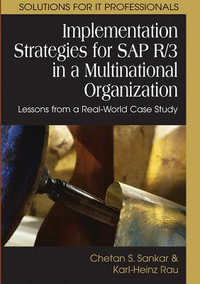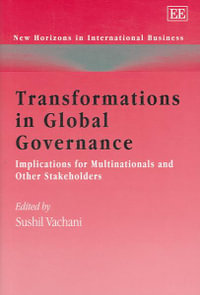| Preface | p. ix |
| Introduction: A Plea for Global Justice | p. 1 |
| Modernity, Inequality, and the Neoliberal Project of the Global Market | p. 1 |
| The Inadequacy of the Utilitarian Worldview and Rawls's Failed Attempt to Correct It | p. 5 |
| It Is Time to Act-But for Whom? | p. 8 |
| The Ethical Perspective on Business | p. 14 |
| Outlook and Further Arguments | p. 18 |
| Toward Rights-Based Cosmopolitan Justice: Principles, Obligations, and Agents | |
| Principles of Global Justice | p. 25 |
| Establishing Justice: The Indispensability of the Justice Perspective | p. 25 |
| Justifying Justice: The Rightness of the Justice Perspective | p. 29 |
| Equalizing Justice: The Egalitarian Foundation of the Justice Perspective | p. 34 |
| Defining Justice: A Rights-Based Perspective on Egalitarian Justice | p. 44 |
| Globalizing Justice: Exploring the Philosophical and Political Bounds of Justice | p. 72 |
| Global Justice as Human Development | p. 100 |
| Obligations of Global Justice | p. 115 |
| Responsibility and the Scope of Justice | p. 116 |
| The Mirage of Social Justice? | p. 118 |
| Justice or Virtue: Morally Owed or Merely Desired? | p. 121 |
| Perfect and Imperfect Obligations of Justice | p. 123 |
| Shifting the Focus from Causality to Capability | p. 134 |
| Agents of Global Justice | p. 145 |
| Power and Moral Obligation: Individuals, Collectivities, and Institutions | p. 146 |
| Primary and Secondary Agents of Justice | p. 153 |
| Theory of the Quasi-Governmental Institution: Power and Authority in the Global Political Economy | |
| Multinational Corporations Between Depoliticization of the Economy and Economization of Politics: Unfolding the Neoliberal Paradox | p. 167 |
| Depoliticization of the Economy: Classical Liberalism | p. 169 |
| Economization of Politics: Neoliberalism | p. 174 |
| The Neoliberal Paradox: The Implicit Politicization of the Private Enterprise | p. 177 |
| Political Power and Authority of Multinational Corporations | p. 180 |
| The Public Nature of Corporate Power | p. 181 |
| Historical Foundations of Corporate Power | p. 184 |
| Ingredients of Corporate Power | p. 188 |
| Sources of Corporate Power: From Relational to Structural Power | p. 193 |
| Structural Change and Corporate Power in the Global Political Economy | p. 195 |
| The Public Expression of Corporate Power: Political Authority | p. 207 |
| When Multinational Corporations Act like Governments | p. 213 |
| Governing People: Derber's "Corporate Mystique" | p. 214 |
| Governing Markets: Networked Capitalism | p. 221 |
| Governing Governments: Sovereignty of States or of Corporations? | p. 226 |
| Governing Themselves: Corporate Rule Making | p. 245 |
| Multinational Corporations as Primary Agents of Justice: The Duty to Respect, Protect, and Proactively Realize Human Rights | |
| Challenging Common Perceptions: Some Preliminary Conceptual Reflections on Multinational Corporations' Obligations of Justice | p. 261 |
| Refuting the Neoclassical Business Model: From Wealth Creation to Just Distribution | p. 263 |
| Challenging "Corporate Social Responsibility": From Beneficence to Obligations of Justice | p. 269 |
| Advancing Business and Human Rights: From "Do No Harm" to Human Development | p. 282 |
| Making Sense of Multinational Corporations' Obligations of Justice | p. 290 |
| Avoiding Injustice: The Duty to Respect Human Rights | p. 291 |
| Preventing Injustice: The Duty to Protect Human Rights | p. 305 |
| Restoring Justice: The Duty to Proactively Realize Human Rights | p. 311 |
| A Look into the Future: Restoring Democracy in the Global Age | p. 348 |
| A Necessity for the Present | p. 349 |
| A Vision for the Future | p. 352 |
| Notes | p. 357 |
| References | p. 363 |
| Index | p. 399 |
| Table of Contents provided by Ingram. All Rights Reserved. |
























